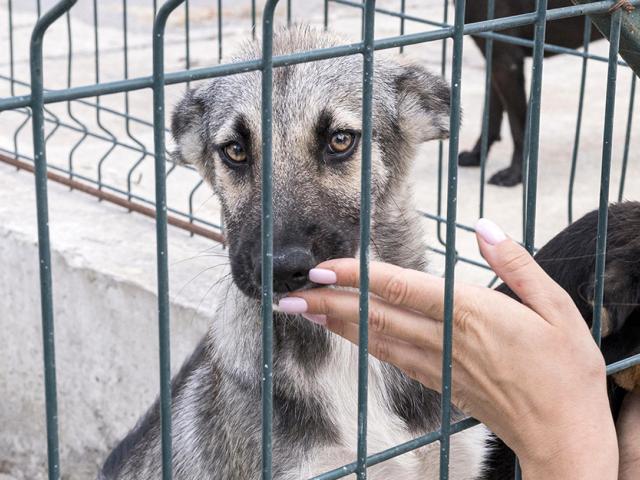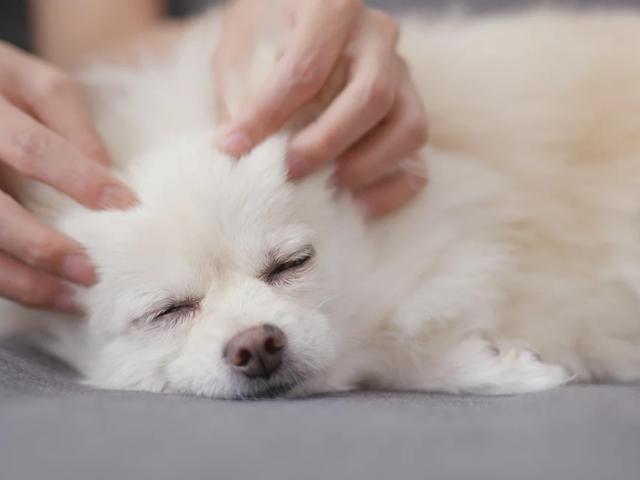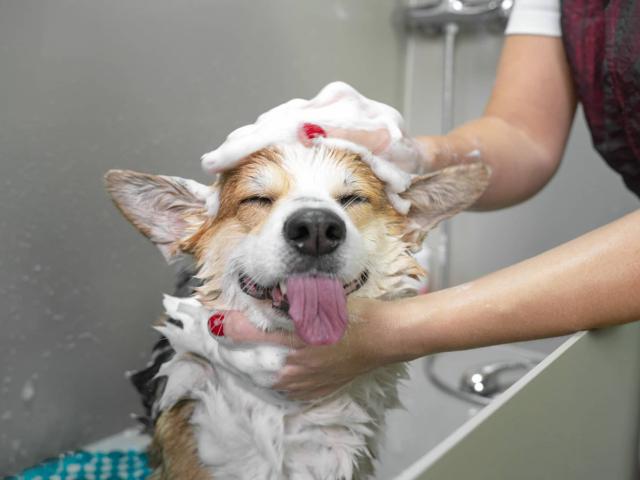Just like children, most dogs love snow and are very excited to get outside, jump and play with the snowflakes. To let your dog enjoy these moments, we recommend taking a few precautions to protect your pet. Here are some tips to let him have fun without any risks.
The cold
In general, dogs are much better adapted to the cold than humans. However, when you let your dog out in the snow, make sure he keeps active. Do not leave him out in the snow for long periods of time inactive, and ensure that he warms up well afterwards. If you see your dog shivering, bring him in a warm place and dry him well.
Protect the dog's pads
Dog can suffer burns or injuries to the pads of his paws caused by the snow and de-icing salt. Before going for a walk or letting your dog out in the snow, it is therefore recommended to protect his pads because they are fragile.
The best solution, for dogs who tolerate it, is to protect their paws with small dog boots so that the ends of their legs are perfectly insulated. These are available in different sizes and in many models and colours. There are also dog socks that also keep their paws warm.
The pads can also be protected with a special balm, both insulating and moisturising, or even with a preparatory cream to apply to your dog's pads before letting him out.
Watch his eyes
The reflection of the sun on the snow can cause in dogs, as in humans, a strong inflammation called "uveitis".
It is a serious condition that should be recognised quickly. To avoid this kind of problem, it is preferable, for his comfort, to take him for walks at times when the sun is not too strong. For example taking him for a walk in the forest, in the snow, sheltered from the reverberation.
A coat for your dog
The freezing cold is difficult to bear for puppies, dogs in fragile health, and older dogs, but certain breeds are also particularly sensitive to it. This is for example the case of the Mexican Hairless Dog, the Pinscher, the Chihuahua, the Greyhound, the Italian Greyhound or the Chinese Crested Dog. They need to be protected during an outing in the snow with a warm, water-repellent coat.
Eating snow
Dogs like to catch flakes and eat snow and it will be hard for you to stop them. A small amount of snow won't hurt. However, eating too much snow can cause gastric problems and diarrhoea.
De-icing salt and antifreeze
If you're walking your dog in de-iced streets, watch out! De-icing salt that is spread on snow-covered roads and sidewalks is a real danger for dogs. It tends to stick to the fur and can be ingested by the dog when he licks himself. This is very likely to cause diarrhea, vomiting or other gastric problems. As for antifreeze, some dogs enjoy licking it. But it is an extremely dangerous product for dogs which can even lead to death. When you come back from a walk, rinse your dog's paws well with water and dry them well.
In the slightest doubt, if the dog presents a suspicious symptom, consult a vet immediately.
After a walk
After your walk or play in the snow, whether he can stand the cold or not, take the time to dry your dog. Snow sticks to the fur so your dog can stay wet for a long time, which can cause skin chapping or frostbites. The pads and the areas between the toes are particularly sensitive, rinse and dry his paws if he is likely to have salt or antifreeze on them. Do not forget to also remove the small packets of ice that attach to the fur and between the toes. Additionally, it is essential that he can warm up quickly.
Dogs more at risk
Some dogs are more sensitive to the cold, so you will have to be more careful. They are:
- dogs with short or fine hair
- young puppies
- sick dogs
- certain breeds
We can cite for example the Chihuahua, Yorkshire, Shih Tzu or Greyhound. For these more sensitive dogs, we advise you to make them wear a waterproof coat that protects the belly.
At DogStroll Day Care Center, if your dog wishes to play in the snow, we encourage play and let them have fun, while making sure they keep active, are well protected for breeds not adapted to the snow, and we have a warm area indoors to warm up, and for dogs who do not wish to go out in the snow.


